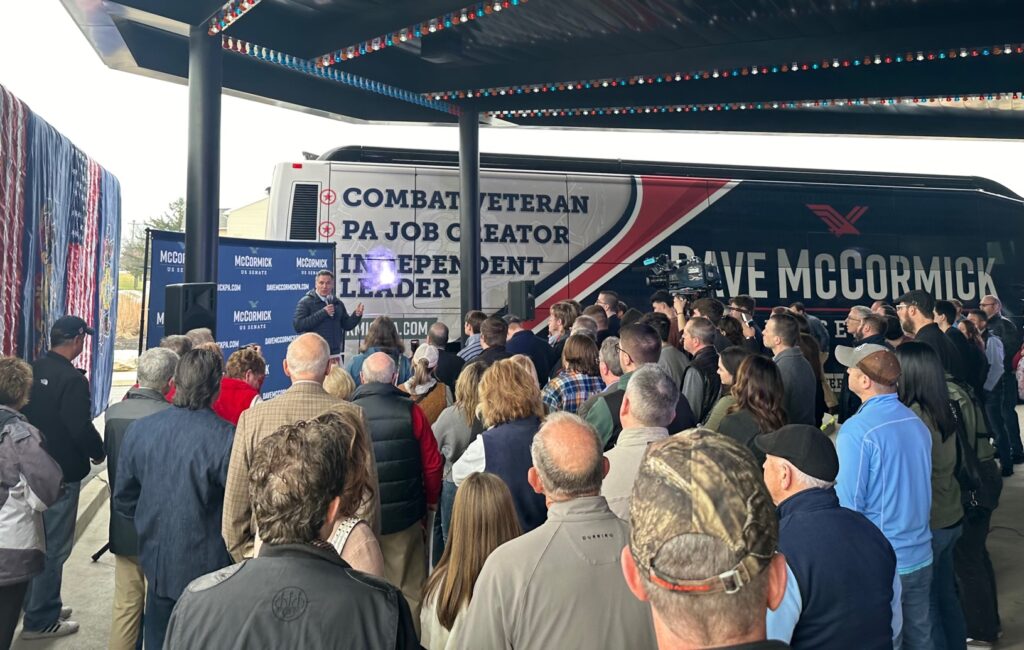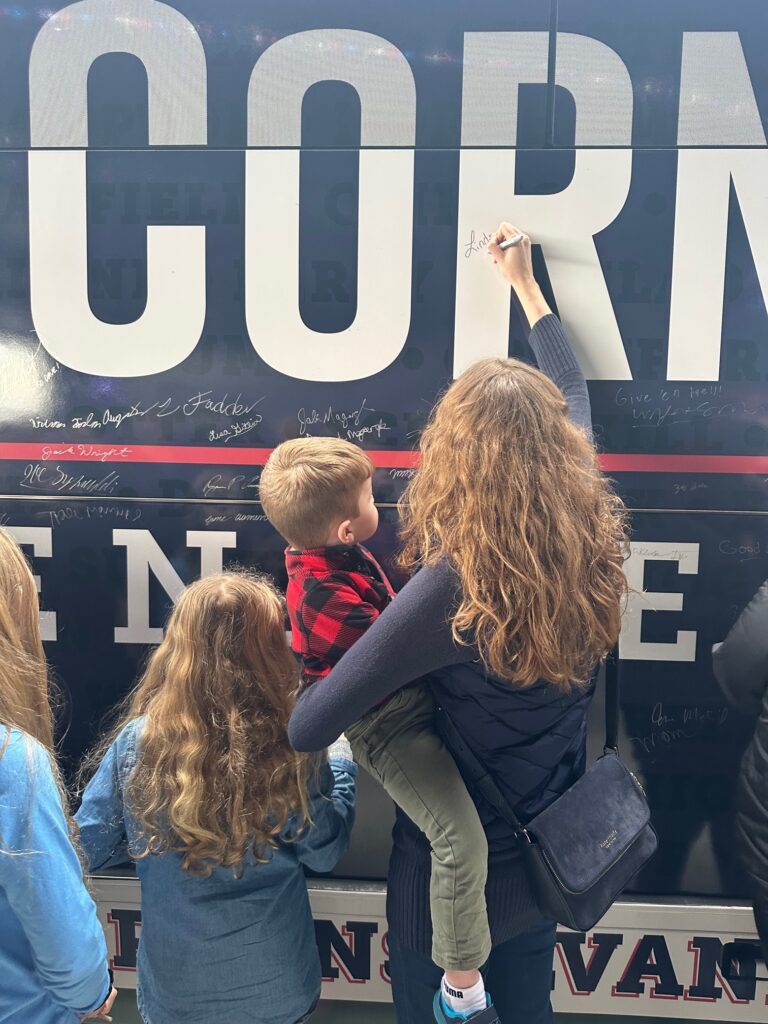LILITZ, Pennsylvania — Dave McCormick rolled out his “Fighting for Pennsylvania‘s Future” campaign bus Saturday in this Lancaster County city. McCormick is a Republican candidate who is challenging incumbent Sen. Bob Casey Jr., a Scranton Democrat seeking his fourth term.
McCormick said he would be visiting all of Pennsylvania’s 67 counties, listening to voters’ concerns during what promises to be one of the most expensive races in the country and likely the most determinative for which party will hold the Senate majority next year.
“The reason I’m so excited about this bus launch is this is the next phase of the campaign, to go make the case to the great people of our commonwealth about the kind of leadership we need to get our country back on track,” he said.
He was flanked by his wife, Dina Powell McCormick, state treasurer Stacy Garrity, Rep. Lloyd Smucker (R-PA), and Republican state Rep. Ryan Aument, along with the Republican candidate for state attorney general, Dave Sunday.
McCormick said when he and Dina, a former deputy national security adviser, thought about this race, they thought it was the time to try to make a difference.

“This election is a rallying point and a place to reset and get our country moving in the right direction … and our campaign is about fighting for the great people of Pennsylvania,” he said.
Garrity, who spent decades in the U.S. military, including several deployments to Iraq, retiring as an Army Reserve Colonel, said she was from one of those rural areas of Pennsylvania, Bradford County, that she says career politicians often forget.
“These overlooked and unheard voters have been waiting for someone to reach out to them, and this is what Dave McCormick is doing with this bus tour,” said Garrity, who is up for reelection this year.
Garrity has some expertise in understanding McCormick’s philosophy of focusing on the rural, often-overlooked parts of the state. The Bradford native shocked both political establishments four years ago when she won on a shoestring budget of $200,000, compared to the $2 million her Democratic opponent had, winning comfortably down the ballot from fellow Republican Donald Trump the year he narrowly lost to Democrat Joe Biden.
Garrity was relentless in her on-the-ground rural outreach, and it paid off in the ballot box.
Christopher Borick, a political science professor at Muhlenberg College, said that going into this race between Casey and McCormick, Casey has the advantage of incumbency, but both men are entering a level playing field when it comes to the impact of the presidential candidates at the top of the ticket.
“That is going to dictate a lot of their ultimate success or failure, given that it’s a presidential year, and that top-of-the-ticket impact will be real,” Borick said. “It is going to be hard for either McCormick or Casey to break away from the top of their tickets, and it is not a large segment of the population that’s going to vote for the presidential candidates and their party and not vote [for the same party] down ballot.”
Biden is at an abysmal 36% approval rating in Pennsylvania, according to the latest RealClearPolitics polling averages. That average, though, has not yet calculated in how voters view him after disturbing observations were released in special counsel Robert Hur’s report last week describing Biden as having diminished cognitive abilities.
Borick explained that despite Trump’s decision not to endorse McCormick in 2022, instead going with celebrity doctor Mehmet Oz, who lost, Trump in an odd way helps McCormick if Trump’s enthusiastic voters don’t split their ticket while more upper-class voters vote less along party lines.
“McCormick, like [former Republican Sen. Pat] Toomey, could still get the [ticket-splitting] suburban vote [that Trump doesn’t get], and like Toomey in 2016, while neither man is a natural fit with Trump, for different reasons he could actually benefit from Trump at the top of the ticket in terms of getting those red counties to turn out,” Borick said.
This past week, Casey had Sen. Mark Kelly (D-AZ) fundraising for him in the Philadelphia area. The Arizona senator also raised money for Sen. Sherrod Brown (D-OH), who is facing an even tougher challenge to hold on to his seat in his home state that has shifted decidedly Republican.
Rural voters in 12 counties in Pennsylvania changed the race in 2016 when Trump won Pennsylvania over Hillary Clinton — while he made a point to get to them she focused instead on urban Pittsburgh and Philadelphia to stock up on votes.

CLICK HERE TO READ MORE FROM THE WASHINGTON EXAMINER
The numbers in those counties — Luzerne, Erie, Cambria, Beaver, Washington, Westmoreland, Northampton, Greene, Lackawanna, Dauphin, York, and Lancaster — could make the difference to either McCormick or Casey.
“A big part of it is showing up,” Borick said. “The unknown part right now is the mood of the country come November.”
